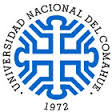- RDI Home
- →
- Facultad de Ciencias Agrarias
- →
- Tesis de Postgrado
- →
- View Item
JavaScript is disabled for your browser. Some features of this site may not work without it.
| dc.contributor.advisor | Sanz Requena, José Francisco | es_ES |
| dc.creator | Gonzalez, Diego Agustín | |
| dc.date | 2021-11-23 | |
| dc.date.accessioned | 2021-11-30T19:43:06Z | |
| dc.date.available | 2021-11-30T19:43:06Z | |
| dc.identifier | http://rdi.uncoma.edu.ar/handle/uncomaid/16521 | |
| dc.description.abstract | Se realizó Análisis de Ciclo de Vida en la producción de heno de alfalfa bajo riego en Alto Valle Rio Negro para evaluar el desempeño ambiental y generar propuestas de mitigación del cambio climático. Se estudió un caso y los modelos productivos de la región con valores calculados de aporte al calentamiento global entre 137 a 195 kgCO2eq por tonelada. | es_ES |
| dc.description.abstract | The production of forage and particularly alfalfa hay has been increasing in the Alto Valle de Rio Negro. The crop is grown under strict irrigation, with a century-old gravity water distribution system that is operational and functional. In this study, a Life Cycle Analysis (LCA) of alfalfa hay production was carried out from cradle to gate in a farm in the Alto Valle. The production models described in the area were also investigated to examine alfalfa production systems from an environmental perspective. The LCA is a tool that makes it possible to identify areas with negative impacts in the production process and rank them. With this information, technicians, institutions and producers can generate crop management alternatives oriented to environmental management not only on-farm but also in the life cycle of the inputs used. The general objective of this work is to generate proposals for climate change mitigation in alfalfa hay production based on an analysis of environmental impacts with an LCA. The functional unit was considered as one ton of alfalfa hay. For the case study we worked with an implantation subsystem and the production subsystem. The CMLCA 6.1 program was used to evaluate the environmental impacts. The CML-IA baseline V3.02/World 2000 methodology was used with the impact categories Abiotic Depletion (AD), Abiotic Depletion (fossil fuels) (ADF), Global Warming (GWP), Ozone Layer Depletion (ODP), Human Toxicity (HTP), Freshwater Aquatic Ecotoxicity (FEATP), Marine Aquatic Ecotoxicity (MAETP), Terrestrial Ecotoxicity (TETP), Photochemical Oxidation (PO), Acidification (A), Eutrophication (E) with results in the case study of 0 kg Sb eq, 1150 MJ, 195 kg CO2 eq. , 0 kg CFC-11 eq, 1.7 kg 1,4-DB eq, 0.813 kg 1,4-DB eq, 0.00458 kg 1,4- DB eq, 0.0435 kg 1,4-DB eq, -0.0318 kg C2H4 eq, 3.07 kg SO2 eq and 0.734 kg PO4 eq respectively. For the productive models the impact categories evaluated were AD, ADF, GWP, ODP, HTP, FEATP, MAETP, TETP, PO, A and E. GWP ranged from 137 to 186 kg CO2 eq. and E from 0.00402 to 0.0166 kg PO4 eq., approximately 90 % of the normalized impacts correspond to the toxicity categories and are due to the use of insecticides, herbicides and fertilizers. The use of these agrochemicals results in 99% of the total impacts of the entire LCA corresponding to on-farm emissions. The results of the production models indicate that model 3, with greater surface area and technology, occupies less labor and consumes more fuel, generating greater GWP, AD, ADF and E participation. On the other hand, the low yield reported in model 1 generates negative indicators in the rest of the evaluated categories. Work alternatives are presented to mitigate climate change linked to improving environmental indicators and management proposals aimed at minimizing the inputs used. | |
| dc.format | application/pdf | es_ES |
| dc.language | spa | es_ES |
| dc.publisher | Universidad Nacional del Comahue. Facultad de Ciencias Agrarias | es_ES |
| dc.rights | Atribución-NoComercial-CompartirIgual 2.5 Argentina | es_ES |
| dc.rights.uri | https://creativecommons.org/licenses/by-nc-sa/2.5/ar/ | es_ES |
| dc.subject | Alfalfa | es_ES |
| dc.subject | Mitigación | es_ES |
| dc.subject | Cambio climático | es_ES |
| dc.subject | Gestión sostenible | es_ES |
| dc.subject | Análisis del ciclo de vida | es_ES |
| dc.subject.other | Ciencias de la Tierra y Medio Ambiente | es_ES |
| dc.title | Propuestas para mitigar el cambio climático. Un caso de análisis del ciclo de vida del heno de alfalfa en Río Negro, Argentina | es_ES |
| dc.type | TesisdePostgrado | es |
| dc.type | doctoralThesis | eu |
| dc.type | acceptedVersion | eu |
| unco.tesis.grado | Máster en Cambio Climático | es_ES |
| dc.description.fil | Fil: Gonzalez, Diego Agustín. Universidad Nacional del Comahue. Facultad de Ciencias Agrarias; Argentina. | es_ES |
| dc.description.fil | Fil: Gonzalez, Diego Agustín. Universidad Europea del Atlántico. Area de Medio Ambiente; Argentina. | es_ES |
| dc.description.fil | Fil: Gonzalez, Diego Agustín. Universidad Internacional Iberoamericana. Area de Medio Ambiente; Argentina. | es_ES |
| dc.cole | Tesis de Posgrado | es_ES |



